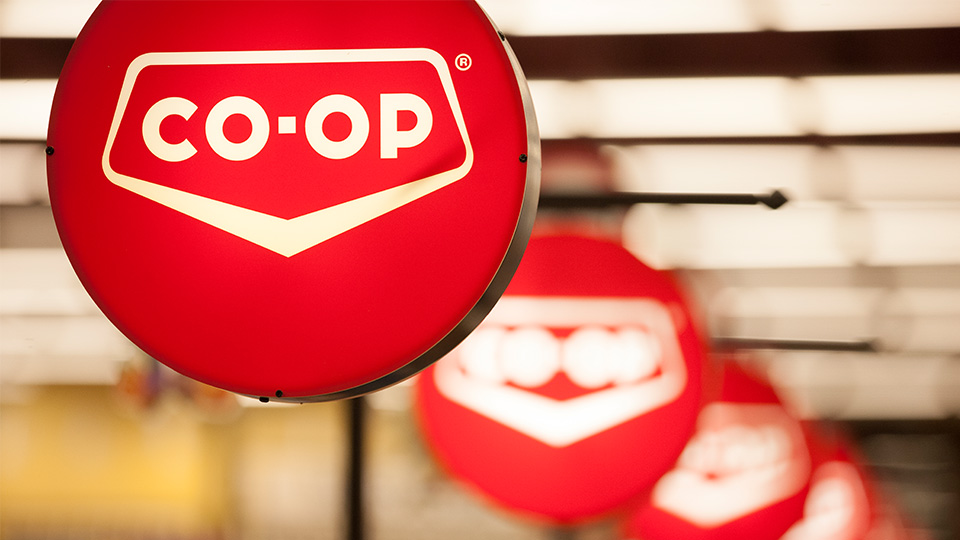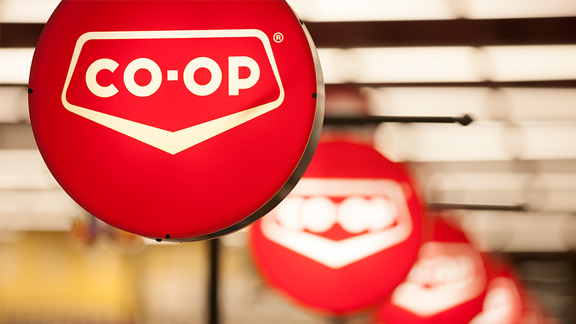Frequently Asked Questions about Co-op
 Frequently Asked Questions about Co-op
Frequently Asked Questions about Co-op

Have questions about Co-op? We have answers!
Understanding Your T4A
T4A's are mailed out in February of each year to members who received a patronage refund in excess of $100 in May of the preceding year. Please keep your mailing address current.
Borderland Co-op is required by CRA (Canada Revenue Agency) to remit 15% withholding tax for all members who had a patronage refund over $100 but all patronage refunds are not necessarily taxable. If the refund is earned on consumer goods (i.e. groceries, household items, gasoline for private car use) it is not subject to the 15% withholding tax. You can then claim the withholding tax amount (Box 22 on your T4A) back as a credit under Total Tax deducted when you file your personal income tax return. If you are doing this write "Consumer Goods Only" on the face of your T4A and do not report the amount in Box 30 as part of your personal income on your tax return. Patronage refunds are normally only taxable and reported as income for business persons, farmers, contractors, etc.
Note: The amount in Box 30 of your T4A is the total allocation of cash and equity, not the amount of your general cash repayment cheque.
Co-op
- What is Co-op?
The CO-OP® brand is used by a network of retail co-operative associations across Western Canada that own and operate Co-op Agro Centres, Food Stores, Gas Bars/Convenience Stores, Home Centres, Liquor Stores, Pharmacies and more.
- Who owns and operates Co-op?
Every Co-op is owned by its members, who democratically elect a Board of Directors. The Board of Directors works with management to operate the business.
- Why is every Co-op store different?
Co-ops differ from community to community because they serve the unique needs of their local members.
- How is Co-op different from other businesses?
A co-operative is a different way of doing business. It’s about people coming together in their communities for a common purpose. It provides the products and services that meet their needs.
- What is a co-operative?
The International Co-operative Alliance defines a co-operative as an autonomous association of persons united voluntarily to meet their common economic, social, and cultural needs and aspirations through a jointly owned and democratically-controlled enterprise.
Membership
- Do I need to be a member to shop at Co-op?
Customers do not need a membership to shop at Co-op locations.
- Who can become a member?
While requirements may vary, membership is generally open to any individual over 16 years of age and businesses.
- How do I become a member?
It’s easy to become a member. Complete a Membership Application at your local Co-op location and purchase a share(s) of the Co-op.
- How much are Co-op shares?
The price of shares vary between Co-op and can range from $5 to $25, which is refundable should you wish to end your membership.
- What is a Co-op number?
Once your application is submitted, you will receive a Co-op number to use when making purchases at your local Co-op’s locations. This number tracks purchases and is used to determine potential cash back or equity.
- Can I use my Co-op number at all locations?
A Co-op number represents your membership and can only be used at locations operated by the individual Co-op assigning the number. Because each Co-op is a unique business that is locally owned and operated, run by a local board of directors, your Co-op number cannot be used across Western Canada. However, you can purchase shares in as many co-op associations as you wish.
- What is cash back and equity?
Local Co-ops often share any profits realized in a year with their members. The Board of Directors approves an amount, which is returned to members as a percentage of their yearly purchases. Members will receive some of this in cash and the rest will be deposited into an equity savings account that grows over time.
- When do I receive cash back and equity?
If cash back and equity is approved by your local co-op’s board of directors, they will be distributed once all accounting of the Co-op’s finances have been completed after its fiscal year end, which differs for each organization.
- Why do you require my Social Insurance Number?
Your Social Insurance Number is required under the Income Tax Act for tax reporting purposes. Similar to some financial investments, cashback or equity distributed to Co-op members is considered taxable income. Your local Co-op may issue a T4A form in advance of filing deadlines.

